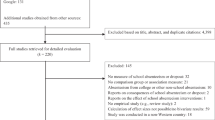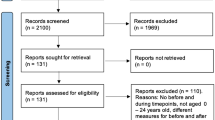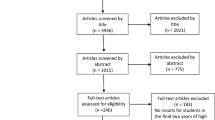Summary
The hospital records of sixty West African students admitted between 1955–1965 to a Post-graduate Teaching Hospital were studied. A postal follow-up was then carried out and the records of subsequent admissions were examined. — The problems of diagnosis were examined and the significance of persecutory delusions assessed. They were found to occur in nearly all the patients regardless of diagnosis, and were recognised as being of diagnostic significance for schizophrenia only when they were western in content, either because the persons accused were nonAfrican or because electronic apparatus, etc., was said to be involved. — It was emphasized that feelings of passivity should not be confused with ideas of poisoning and magic. The common occurrence of grandiose delusions in West Africans was confirmed. — Only five of the students qualified. A diagnosis of schizophrenia and more than one admission to hospital were associated with almost certain academic failure. — The Mill Hill and Progressive Matrices were found to be highly unreliable tests for the measurement of intelligence quotient in these students. — The problems of repatriation were briefly discussed. Evidence from elsewhere suggests that the present illness and to a lesser extent the rate of relapse may be improved following repatriation. However, it must be advised with a full knowledge of the stress involved for the patient and a consideration of his chances of passing his examination. — In the circumstances it seems reasonable to recommend repatriation in patients with schizophrenia necessitating more than three to four months in hospital, and those, regardless of diagnosis, who have had more than one admission to hospital, since they appear unlikely to succeed in their studies.
Rèsum/`e
Les observations hospitalières de 60 étudiants ouest-africains admis entre 1955 et 1965 dans un hôpital d'enseignement post-universitaire ont été étudiées. Une enquête longitudinale par correspondance a été entreprise et les observations se rapportant aux admissions ultérieures examinées. — Les problèmes diagnostiques ont été passés en revue et la signification des idées délirantes de persécution évaluée. Il a été constaté que celles-ci existaient chez presque tous les malades, quel que soit le diagnostic, mais qu'elles avaient une signification diagnostique en faveur de la schizophrénie seulement quand leur contenu était de type occidental, soit parce que les personnes accusées n'étaient pas africaines, soit parce que des appareils électroniques, etc., étaient mis en cause. — Il a été souligné que les idées d'influence ne devaient pas être confondues avec les idées indigènes d'empoisonnement et de magie. La survenue fréquente d'idées délirantes de grandeur chez les ouest-africains a été confirmée. — Cinq étudiants seulement réussirent leurs examens. Le diagnostic de schizophrénie et plus d'une seule admission à l'hôpital ont été trouvés liés à un échec pratiquement certain dans les études. — Les tests de Mill Hill et des Progressive Matrices se sont révélés très défectueux pour l'estimation du quotient intellectuel de ces étudiants. — Les problèmes de rapatriement ont été rapidement discutés. D'autres travaux suggèrent que la maladie actuelle et dans une moindre proportion la fréquence des rechutes peuvent être améliorées à la suite du rapatriement. Cependant cette éventualité doit être conseillée en prenant soigneusement en considération l'épreuve qu'elle représente pour le malade et ses chances de passer ses examens. Dans l'état actuel des choses, il semble raisonnable de recommander le rapatriement des schizophrènes pour lesquels un séjour de plus de 3 ou 4 mois à l'hôpital est nécessaire et des malades, quel que soit le diagnostic, qui ont été admis plus d'une fois à l'hôpital, à partir du moment où il apparaît peu probable qu'ils poursuivent leurs études avec succès.
Zusammenfassung
Die Krankengeschichten von 60 west-afrikanischen Studenten, die zwischen 1955 und 1965 in eine Ausbildungsklinik für postgraduierte Studenten aufgenommen worden waren, wurden untersucht. Später wurden eine briefliche Nachuntersuchung durchgeführt und die Berichte von Wiederaufnahmen eingehend geprüft. — Es wurden diagnostische Probleme behandelt und die Bedeutsamkeit von wahnhaften Verfolgungsideen abgeschätzt. Letztere kamen unabhängig von der Diagnose bei nahezu allen Patienten vor. Es wurde ihnen nur dann eine diagnostische Relevanz für Schizophrenie zugemessen, wenn ihr Inhalt aus westlich-abendländischem Denken entstammte, dann nämlich, wenn die im Wahn beschuldigten Personen Nichtafrikaner waren oder wenn elektronische Apparate darin eine Rolle spielten. — Es wurde betont, daß Gefühle der Passivität nicht mit Vergiftungswahn und magischem Denken verwechselt werden dürfen. Es wurde bestätigt, daß Größenideen bei Westafrikanern normalerweise vorkommen. — Nur 5 der Studenten erwiesen sich im Examen als tauglich. Mit der Diagnose Schizophrenie und mit mehr als einer Klinikaufnahme ging zumindest ein gewisses Versagen im Studium einher. — Bei diesen Studenten erwiesen sich für die Messung des Intelligenzquotienten der Mill Hill-Test und der Progressive Matrices-Test als sehr unzuverlässig. — Die Probleme der Repatriierung wurden kurz diskutiert. Die aus anderen Untersuchungen gewonnenen Erfahrungen lassen vermuten, daß die akute Krankheit und in einem geringeren Maße die Rückfallquote im Anschluß an eine Repatriierung gebessert werden können. Dies darf jedoch nur dann empfohlen werden, wenn man die für den Patienten damit verbundene Belastung vollständig kennt und die Chancen für sein Examen abschätzen kann. Unter diesen Umständen scheint es vernünftig, die Repatriierung solchen Schizophrenen anzuraten, die mehr als 3–4 Monate Klinikaufenthalt benötigen, und jenen, die — unabhängig von der Diagnose — öfter als einmal in eine Klinik aufgenommen werden mußten, da bei ihnen ein Erfolg im Studium unwahrscheinlich ist.
Similar content being viewed by others
References
Asuni, T.: Review of Nigerian students repatriated on psychiatric grounds (in press) (1967).
Carothers, J. C.: The African mind in health and disease. W. H. O. (1953).
Eitinger, L.: The incidence of mental diseases among refugees in Norway. J. ment. Sci.105, 326 (1959).
Hemsi, L. K.: Psychiatric morbidity of West Indian immigrants — a study of first admissions in London. Social Psychiatry2, 95 (1967).
Kidd, C. B.: Brit. J. prev. soc. Med.19, 143 (1965).
Lambo, T. A.: Observation on the role of cultural factors in paranoid psychosis among the Yoruba tribe. M. D. Thesis, Birmingham University (1950).
—: The role of cultural factors in paranoid psychosis among the Yoruba tribe. J. ment. Sci. Vol. II. 1388 (1955).
- A report on the study of social and health problems of Nigerian students in Britain and Ireland (1957) (Unpublished).
Mezey, A. G.: Personal background, emigration and mental disorders in Hungarian refugees. J. ment. Sci.106, 618 (1960).
Ødegaard, O.: Emigration and insanity. Acta psychiat. scand.20, 247 (1945).
Tooth, G.: Studies in mental illness in the Gold Coast. Her Majesty's Stationery Office (1950).
Author information
Authors and Affiliations
Additional information
Prepared from a dissertation submitted for the Academic Post-graduate Diploma in Psychological Medicine of the University of London, 1966
Rights and permissions
About this article
Cite this article
Copeland, J.R.M. Aspects of mental illness in West African students. Soc Psychiatry 3, 7–13 (1968). https://doi.org/10.1007/BF00577949
Issue Date:
DOI: https://doi.org/10.1007/BF00577949




